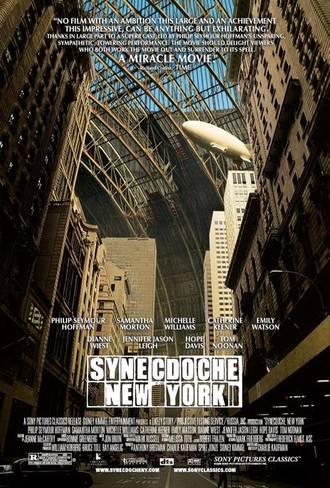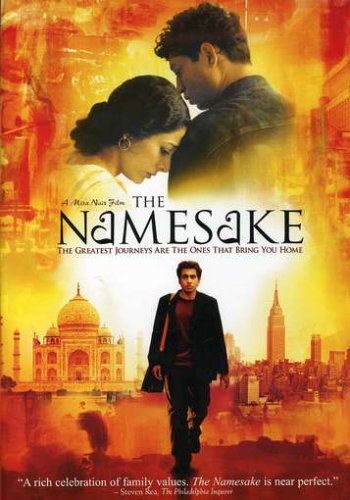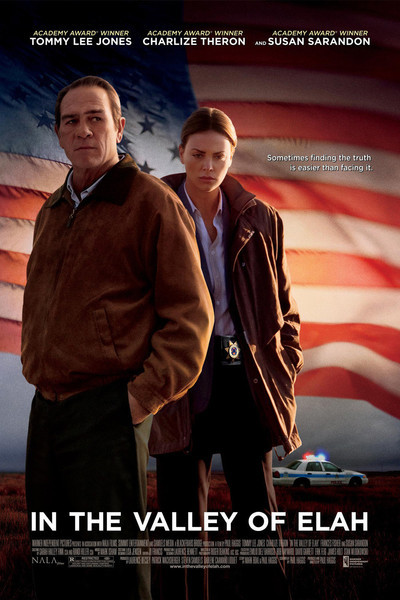
The mother of all actresses
soars in tearful search for son
Webster’s defines “changeling” as “a child secretly put in the place of another.” Most people who see this film probably won’t know that. It is not such a big secret. Director Clint Eastwood, in trailers, openly advertises some form of confusion involving a little boy. This acknowledgment, and the title, don't come close to telling the story.
The first thought that comes to mind is, thank goodness for lawyers. The second? What a sad, uneven world this is for missing persons and their families.
An exasperated police dispatcher says that “99 percent” of the time, children reported missing by their mothers come home within 24 hours, and perhaps this statistic is accurate, thankfully. But some of them don’t. And to this day, some missing-person cases are regularly in the news while others are ignored by authorities. The level of public interest seems to stem from the P.R. abilities of the distraught families. In defense of the authorities, there comes a time — probably quickly — when there are simply no more places to look. To this day, it is not very hard to disappear, even with DNA tests, surveillance cameras and Social Security and credit card numbers.
The world’s most famous mother, Angelina Jolie, plays Christine Collins, a single mother in L.A. whose reaction to the disappearance of her son is every bit what one would expect from the actress herself. But she does not have money, or connections, or anything resembling a fax machine, and so she can only ask the police department for help.
Because this film is set in 1928, no members of the LAPD will probably be offended. But one wonders whom Eastwood has in mind with his depiction of such a deplorable police department. Eastwood, like everyone else in Hollywood, was questioning authority decades ago, post-Vietnam and Watergate, in films such as “The Gauntlet” and “Magnum Force.” Is “Changeling” referring to the Iraq war or Guantanamo? The parallels don’t seem that strong.
Rather, “Changeling” strongly reflects some themes from much more recent Eastwood works. Like “Mystic River,” it deals with crimes against children. It suggests authorities will readily manipulate people for propaganda purposes as in “Flags of Our Fathers.”
And it significantly picks up on a prominent theme from “Million Dollar Baby” — sexism.
Many people can readily name those films as Eastwood’s. What they probably don’t know is that he has employed the same cinematographer, Tom Stern, for his last seven films. Stern before that was Eastwood’s chief lighting technician during the late 1980s and 1990s, and a gaffer prior to that. From gaffer to (ultimately) cinematographer of some of the world’s most acclaimed films is quite an achievement. Stern and Eastwood favor very subdued colors. Afterwards, you sometimes wonder if the movie you just saw was in black-and-white. This time, they persist in depicting Christine Collins with extreme red makeup — either to make her stand out in this fairly colorless world, or simply to draw attention to Angelina’s lips. (Coincidentally, “Changeling” visually resembles the recent “Cinderella Man,” also a 1930s story produced by the Brian Grazer-Ron Howard team, which also produced “Changeling.”)
Christine Collins, like Charlize Theron’s Josey Aimes in “North Country,” would never be a heroine if the people she dealt with were merely rude. Her life is far from glorious, but adequate. She explains that she was married to a man who took a pass on responsibility, and he is long gone. So the alarm goes off, she wakes up, and it’s a full day’s work as a single parent to get her son off to school and to put in an eight-hour day — or more — at a very busy phone switchboard, where you don’t wear shoes, but skates.
But she is not only a good mother, she is a highly regarded employee, so much so that she is made one of the company’s first female supervisors. This gives her a sampling of office sexism, but more significant is the extra time she must spend there — leading to troubling consequences with her son, Walter.
Is Walter’s disappearance handled adequately by Eastwood? It is understandable that even well-meaning police of the time would not have sophisticated ways of searching. But we see no one going door-to-door in the neighborhood, no one posting fliers, no interest on the part of teachers, neighbors, etc., in finding Walter. Christine encounters a couple neighborhood girls who know nothing, and this brings the search more or less to a dead end.
This restrained approach can be justified by Christine’s faith in the authorities, which of course will be strongly tested. If she did not believe so strongly in police help, she surely would not become brainwashed at the train station. “It was very frustrating,” she says in an interview; “I couldn’t figure out how to do that scene.” Her submission in the scene is probably not as absurd as it seems. Occasionally even public figures do strange things that defy logic. What happened to Patty Hearst or Elizabeth Smart is not common, but possible. Nevertheless, depicting an extremely crestfallen woman accepting such a blatant fraud on the spot is not a high point for the script. Nor is it quite so believable when Christine, finally having reversed herself, makes a public statement smoother than what many seasoned P.R. operators could deliver.
Those problems melt away once Eastwood surges into the story. He wants to show a desperate mother battling enormous levels of corruption and sexism, and if the set-up is unrealistic, it gets him there. But Christine can’t do it all by herself.
Many films have featured a religious figure crusading against the establishment. And the depictions sometimes aren’t favorable. Consider Eli Sunday in “There Will Be Blood.” John Malkovich, as Rev. Gustav Briegleb, is a modern version of Karl Malden’s Father Barry from “On the Waterfront.” Despite initial appearances, he is more community activist than radio evangelist. Eventually one wonders why he hasn’t been arrested and thrown in jail. He is a brave man, but as Father Barry convinced Terry Malloy, knows that only Christine can lead this cause.
As clues begin to surface about Walter, the story takes on a “Capote”-esque feel. A criminal case is nearing conclusion, and the suspect possibly has important details to share. There is a risk for Eastwood in milking interest in this case at the expense of Christine. The crime is so jaw-dropping, as in “Frailty,” and the suspect so repugnant, that an entire film could be devoted to this case. But ultimately, what flaws exist in the film are swept under by Christine’s courage. What doesn’t kill her only makes her stronger.
Eastwood is now 78, and if he is not the best director in Hollywood, he’s very close. We know him as an actor and director. If you happen to notice that the score for this film is very poignant, that’s Clint &mdash he did that too. The previews are already out for his next film, “Gran Torino” (he starred and directed). He has been directing for decades, but in the 2000s, he has veered from thrillers and seized on raw human emotion in the most uncomfortable circumstances. Doomed soldiers, paralyzed athletes, anguished parents. How much longer can he keep doing this? Jolie is 33 now, and it’s a good bet — or maybe a wish — that today’s 17- and 18-year-old starlets will eventually get a crack at him too.
He and Jolie did not know each other prior to doing this movie. She certainly would’ve been on anyone’s short list for this role. Her presence probably necessitated a big budget and great fanfare for “Changeling,“ the kind of hype Eastwood completely avoided with his very quiet release years ago of “Million Dollar Baby.”
Jolie is worth every cent. Some say this role is too real, that it will cost her Oscar votes. If so, that is disappointing, but a worthy price to pay. Her extraordinary global reputation at times is offset by her relationships and tabloidy personal moments. What is undeniable is that Angelina takes motherhood very, very seriously. Christine will endure the greatest trauma to save her son, and you know Angelina would too. When it's over, she will have a one-word answer for her actions. She will put a tear in your eye.
4 stars
(October 2008)
“Changeling” (2008)
Starring Angelina Jolie as Christine Collins ♦ Gattlin Griffith as Walter Collins ♦ Michelle Gunn as Sandy ♦ Jan Devereaux as Operator #1 ♦ Michael Kelly as Detective Lester Ybarra ♦ Erica Grant as Operator #2 ♦ Antonia Bennett as Operator #3 ♦ Kerri Randles as Operator #4 ♦ Frank Wood as Ben Harris ♦ Morgan Eastwood as Girl on Tricycle ♦ Madison Hodges as Neighborhood Girl ♦ John Malkovich as Rev. Gustav Briegleb ♦ Colm Feore as Chief James E. Davis ♦ Devon Conti as Arthur Hutchins ♦ J.P. Bumstead as Cook ♦ Jeffrey Donovan as Capt. J.J. Jones ♦ Debra Christofferson as Police Matron at Train ♦ Russell Edge as Reporter #1 at Train ♦ Stephen W. Alvarez as Reporter #2 at Train ♦ Peter Gerety as Dr. Earl W. Tarr ♦ Pete Rockwell as Reporter at Precinct ♦ John Harrington Bland as Dr. John Montgomery ♦ Pamela Dunlap as Mrs. Fox ♦ Roger Hewlett as Officer Morelli ♦ Jim Cantafio as Desk Sergeant ♦ Maria Rockwell as Police Matron at Precinct ♦ Wendy Worthington as Reception Nurse ♦ Riki Lindhome as Examination Nurse ♦ Dawn Flood as Morning Nurse ♦ Dale Dickey as Patient ♦ Jason Butler Harner as Gordon Northcott ♦ Eddie Alderson as Sanford Clark ♦ Sterling Wolfe as Briegleb's Aide ♦ Mike McCafferty as Ticket Vendor ♦ Amy Ryan as Carol Dexter ♦ David Goldman as Administrator ♦ Denis O'Hare as Dr. Jonathan Steele ♦ Anthony De Marco as Abducted Kid #1 ♦ Joshua Moore as Abducted Kid #2 ♦ Joe Kaprielian as Abducted Kid #3 ♦ Ric Sarabia as Man at Diner ♦ Muriel Minot as Secretary ♦ Kevin Glikmann as Male Orderly ♦ Drew Richards as Holding Officer ♦ Hope Shapiro as Medication Nurse ♦ Caleb Campbell as Backup Detective #1 ♦ Jeff Cockey as Backup Detective #2 ♦ Zach Mills as News Vendor ♦ Kelly Lynn Warren as Rachel Clark ♦ Colby French as Bob Clark ♦ Scott Leva as Mountie #1 ♦ Richard King as Mountie #2 ♦ Clint Ward as Mountie #3 ♦ Geoff Pierson as S.S. Hahn ♦ Reed Birney as Mayor Cryer ♦ Michael Dempsey as Man on Street ♦ Peter Breitmayer as Chairman Thorpe ♦ Phil Van Tee as Councilman ♦ Jim Nieb as Reporter at Hearing ♦ Lily Knight as Mrs. Leanne Clay ♦ Jeffrey Hutchinson as Mr. Clay ♦ Brian Prescott as Courtroom Bailiff ♦ Ryan Cutrona as Judge ♦ Mary Stein as Janet Hutchins ♦ Gregg Binkley as Jury Foreman ♦ William Charlton as Prison Guard #1 ♦ Cooper Thornton as Prison Guard #2 ♦ Asher Axe as David Clay ♦ Devon Gearhart as Winslow Boy #1 ♦ Dalton Stumbo as Winslow Boy #2 ♦ Austin Mensch as Boy in Coop ♦ Richard Hansen as Press Photog #1 ♦ Marissa Welsh as Lady in White ♦ Araksi Willebrand as Switchboard Supervisor ♦ Denise Bradley as Church Member ♦ Lauren Ingmire as Classroom Kid ♦ Christopher Karl Johnson as Protester/Man on corner with newspaper smoking ♦ Jonathan Lane as Hospital Visitor ♦ Michael Lovern as Train Passenger ♦ David Pearl as Policeman ♦ George F. Watson as Machine Gun Assassination Squad Leader ♦ January Welsh as Train Passenger
Directed by: Clint Eastwood
Written by: J. Michael Straczynski
Executive producer: Geyer Kosinski
Executive producer: Tim Moore
Executive producer: Jim Whitaker
Producer: Clint Eastwood
Producer: Brian Grazer
Producer: Ron Howard
Producer: Robert Lorenz
Original music: Clint Eastwood
Cinematography: Tom Stern
Editing: Joel Cox ♦ Gary D. Roach
Casting: Ellen Chenoweth
Production design: James J. Murakami
Art direction: Patrick M. Sullivan Jr.
Set decoration: Gary Fettis
Costume design: Deborah Hopper
Makeup: Tania McComas ♦ Carol A. O’Connell ♦ Elizabeth Hoel ♦ JoJo Myers Proud ♦ Jay Wejebe ♦ Mike Mekash ♦ Karma Ritchie ♦ Kim M. Ferry ♦ Rhonda O’Neal
Stunts: Buddy Van Horn ♦ Katie B. Williams ♦ Luci Romberg ♦ Paul Darnell ♦ Dave Thompson ♦ Richard Bucher ♦ Bobby Clark ♦ Shawn Crowder ♦ Loren Dennis ♦ Larry Holt ♦ Scott Leva ♦ Brandon Loeser ♦ Deborah L. Mazor ♦ Dustin Meier ♦ Samuel Reynolds ♦ Chuck Waters





